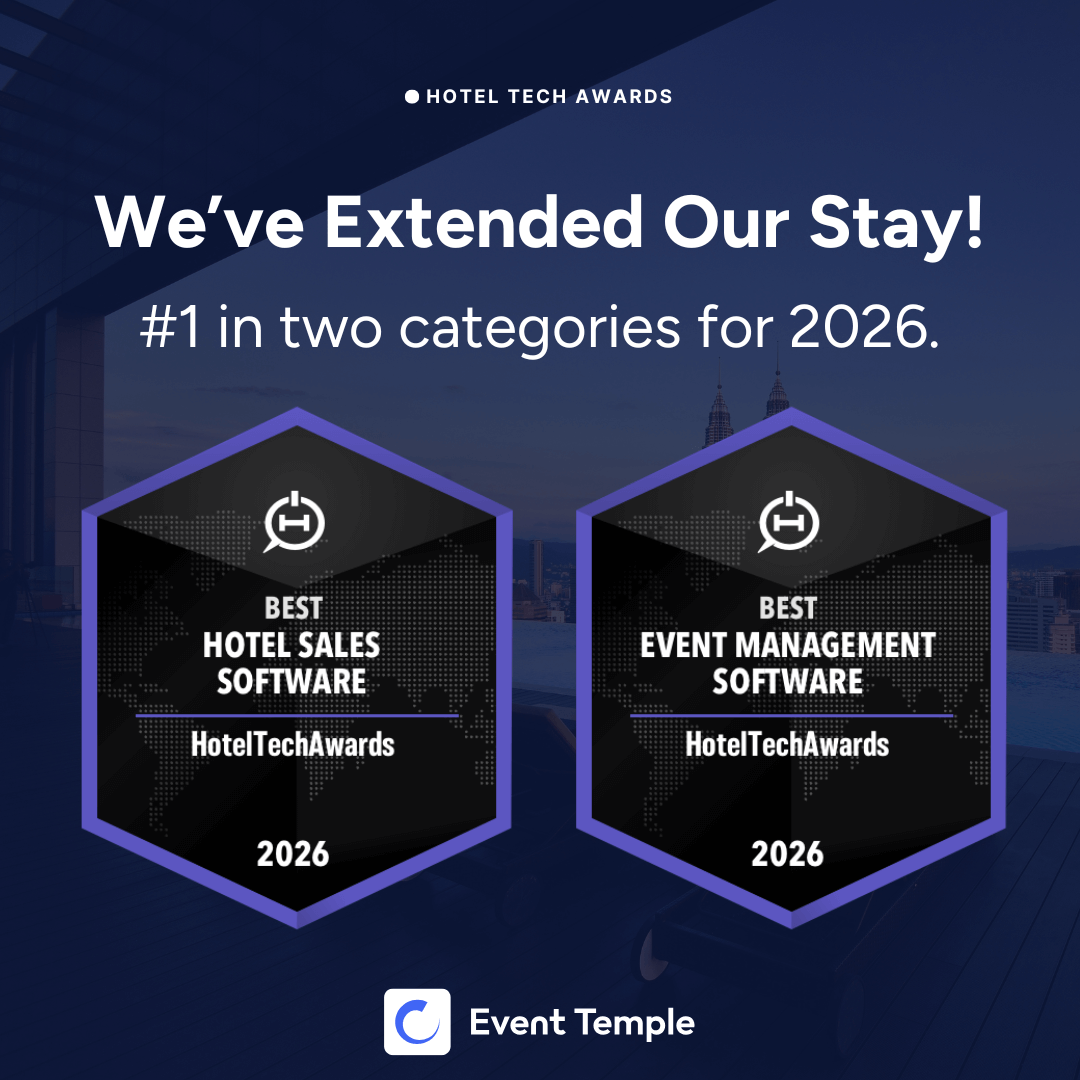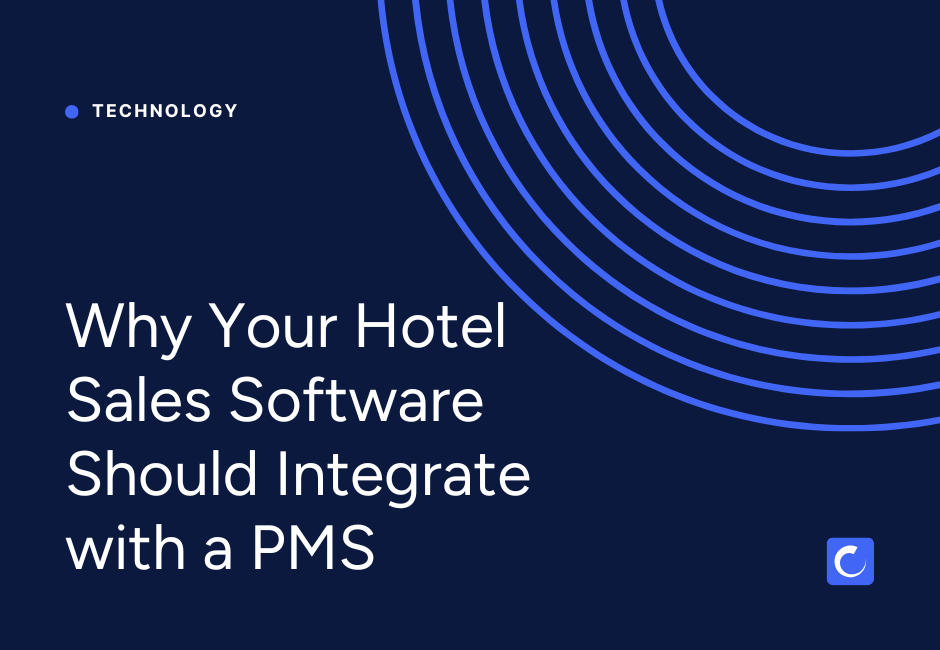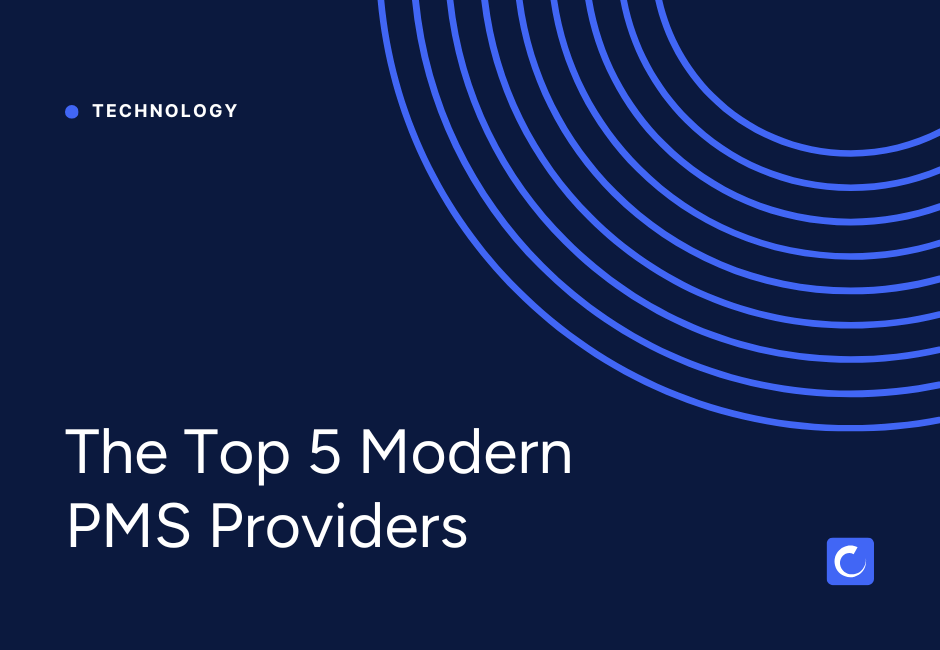
In the “always on” world of hotel sales, every lead counts — that’s why we’ve rounded up a comprehensive list of tactics (with links to helpful resources to explore further) to help hospitality professionals thrive in an increasingly competitive space.
Whether you're managing RFPs for a single property or coordinating sales across a portfolio, this hotel sales guide equips you with no-nonsense, proven strategies to close more business, capture more revenue, and deliver exceptional client experiences.
Let’s dive in.
What Makes Hotel Sales Unique?
Hotel sales isn't just about filling rooms — it's about orchestrating complex events while managing multiple stakeholders, tight deadlines, and evolving client expectations. Group and event sales require:
- Coordinating multiple departments (catering, operations and logistics, event staff, revenue management — just to name a few)
- Managing longer sales cycles with numerous touchpoints
- Balancing space optimization with revenue goals
- Maintaining detailed communication trails across months of planning
Understanding Your Key Market Segments
Success starts with knowing your audience. Each primary business segment requires a tailored approach and this will vary depending on your niche and properties.
While there will always be exceptions, you can work leads more effectively by grouping them strategically based on shared characteristics.
As a starting point to illustrate what this could look like, some common market segments and examples of potential defining features include:
Social Events (Birthdays, Celebrations, Graduation Parties etc.)
- Lead time: Typically less lead time (~0-3 months)
- Decision factors: Availability, bonus add-ons or inclusions
- Key contacts: Individuals or their close friends or family members who may be organizing
Corporate Groups
- Lead time: Less lead time (~1-6 months)
- Decision factors: Location, technology, efficiency
- Key contacts: Executive assistants, meeting planners, procurement teams
Weddings & Anniversaries
- Lead time: Usually more lead time (~6-18 months)
- Decision factors: Ambiance, customization, emotional connection
- Key contacts: Couples, wedding planners, family decision-makers
Association & SMERF Markets (Social, Military, Educational, Religious, Fraternal)
- Lead time: Typically lots of lead time (~9-24 months)
- Decision factors: Value, important dates that can be reserved well in advance, member accessibility
- Key contacts: Board members, volunteer planners, executive directors
You get the idea. Taking the time to understand the needs and preferences of your different business segments will help you meet your customers where they’re at and tailor your communications accordingly.
Building Your High-Performance Hotel Sales Process
A streamlined sales process is your competitive advantage and at the end of the day, what will set you apart from your biggest competitors in the hospitality industry.
Here's a framework that top-performing hotels use:
1. Lead Capture & Response
The Challenge: Hotels can take an average of 48 hours to respond to RFPs, but most planners will end up booking with the first venue to respond. It pays to be prompt.
The Solution:
- Use intake forms that capture all necessary details upfront
- Set up automated acknowledgments
- Aim to deliver full proposals ASAP and within 24 hours of inquiry
- Create templates for common event types to speed up your response time
We’ve just introduced Smart Proposals to help hotel sales professionals deliver professional and polished hotel event proposals in a fraction of the time. Learn more about Smart Proposals here.
2. Qualification & Discovery
The Challenge: Wasting time on unqualified leads while hot prospects go cold.
The Solution:
- Implement a scoring system based on budget, dates, and fit
- Use discovery calls to uncover hidden needs
- Document all requirements in your CRM (Customer Relationship Management) system for easy reference
- Flag VIP clients and repeat business opportunities
Not all leads are created equal, so it’s important to implement a process for lead prioritization to keep focused on those with the highest impact.
3. Proposal Excellence
The Challenge: Generic proposals that fail to connect with client needs.
The Solution:
- Personalize every proposal with the client's event name and goals and treat it like the powerful selling tool that it is
- Include interactive floor plans and links to engaging 3D venue tours
- Highlight relevant success stories and testimonials
- Provide clear, itemized pricing with package options
- Add value through suggested enhancements rather than discounts
Make it easy for your prospects to envision a positive experience in your hotel and event space.
4. Strategic Follow-Up
The Challenge: 80% of successful sales require at least 5 touchpoints, but most salespeople give up after only two.
The Solution:
- Nurture your group sales and event leads with strategic communications
- Create a robust follow-up cadence if you don’t get a response. For example: Day 1, 3, 7, 14, 21
- Vary your approach: email, phone, text, LinkedIn
- Share new information in each touchpoint (availability updates, menu additions, etc.)
- Set automated reminders so nothing falls through the cracks
5. Site Tours That Sell
The Challenge: Converting interest into commitment during property visits.
The Solution:
- Pre-qualify before scheduling tours to ensure serious interest
- Customize the route based on their event needs
- Stage spaces with appropriate setups
- Introduce key team members who would execute their event
- Close with a clear next step and timeline
Ideally, the prospect walks away feeling like the site visit was curated especially for them.
This not only builds trust and confidence in your venue as the perfect destination for their event, but helps foster the all-important relationship between your business and the client that will keep them coming back.
Proven Lead Generation Strategies
The best hotel sales strategies are proactive. Take an active role in filling your pipeline with qualified opportunities through Marketing and Outbound tactics:
Digital Strategies:
- Utilize digital marketing across your hotel’s digital channels
- Optimize website pages for SEO (Search Engine Optimization) — particularly local searches (conference space in [city], best [city] wedding hotel)
- As AI in search grows in prevalence, it is becoming increasingly important to curate online reviews, listings, and citations on third party sites to establish your online presence and increase your chance of surfacing in evolving chatbots and new search platforms
- Create landing pages for specific event types (corporate meetings, weddings)
- Run retargeting campaigns to website visitors who viewed event spaces to nudge them towards conversion
- Leverage Google Hotel Ads for group booking visibility
Relationship Building:
- Partner with local DMOs (Destination Marketing Organizations) and CVBs (Convention and Visitors Bureaus) for referrals
- Build relationships with third-party planners
- Create a preferred vendor network for cross-referrals
- Engage with planning communities on LinkedIn and Facebook groups
Proactive Outreach:
- Mine your PMS (Property Management System) and CRM data for companies with past stays
- Target businesses relocating to your area
- Reach out to associations with annual meetings offering incentives to book
- Monitor competitor's event calendars for future opportunities
Technology: Your Sales Force Multiplier
The right technology stack can help you respond faster, track better, and close more:
Essential Hotel Sales Tools and Features:
- CRM System: Centralize all prospect and client data
- Proposal Software: Create beautiful proposals in just a few clicks
- Built-in eSignature: Accelerate contract execution with handy eSignatures
- Task Automation: Set up automated workflows for common processes
- Reporting Dashboard: Track KPIs in real-time
Integration is Key: Connect your sales and catering tools with your PMS and revenue management system to eliminate duplicate data entry and provide a single source of truth.
Measuring Success: KPIs That Matter
Track these metrics to optimize your sales performance and review them regularly to identify opportunities for improvement:
Speed Metrics:
- Average response time to inquiries
- Time from inquiry to proposal
- Sales cycle length by segment
Conversion Metrics:
- Inquiry to proposal ratio
- Proposal to site tour ratio
- Site tour to booking ratio
- Win/loss reasons
Revenue Metrics:
- Average group size and spend
- Revenue per available space (RevPAS)
- Total revenue per group
- Repeat business percentage
The Post-Event Opportunity
Your job doesn't end once the invoice has been paid. Build long-term relationships (and repeat business!) through:
- Immediate post-event surveys while memories are fresh
- Thank you notes that include photos from their event
- Automated re-booking campaigns for annual events
- Referral incentive programs for planners
- Case study development for marketing purposes
Common Pitfalls to Avoid
Learn from these frequent mistakes:
- Over-promising during sales: Always under-promise and over-deliver
- Poor handoffs to operations: Use detailed BEOs (Banquet Event Orders), centralized and integrated systems for a single point of truth, and regular transition meetings
- Neglecting small groups: Today's small meeting could grow to be tomorrow's conference
- Competing on price alone: Sell value, experience, and partnership
- Ignoring lost business: Always understand why you didn't win and take feedback to improve
Your Action Plan
Ready to level up your hotel sales game? Start here:
- Audit your current response times: How quickly are you really responding?
- Review your proposal template: Does it help you sell or just inform?
- Implement one new lead source: Choose from the strategies above to drive more business
- Set up tracking for one new KPI: You can't improve what you don't measure
- Schedule time for proactive outreach: Dedicate some time weekly for business development and proactive outreach
The Bottom Line
Success in hotel sales is built on strong relationship-building skills but also demands efficient processes, strategic thinking, and the right tools.
By implementing the strategies in this hotel sales guide, you'll be well on your way to capture more leads, convert more proposals, and create lasting client relationships that drive sustainable revenue growth into the future.
Ready to transform your hotel's sales process? Discover how Event Temple helps leading hotels respond faster, track smarter, and close more group business with a personalized walkthrough of our platform.



